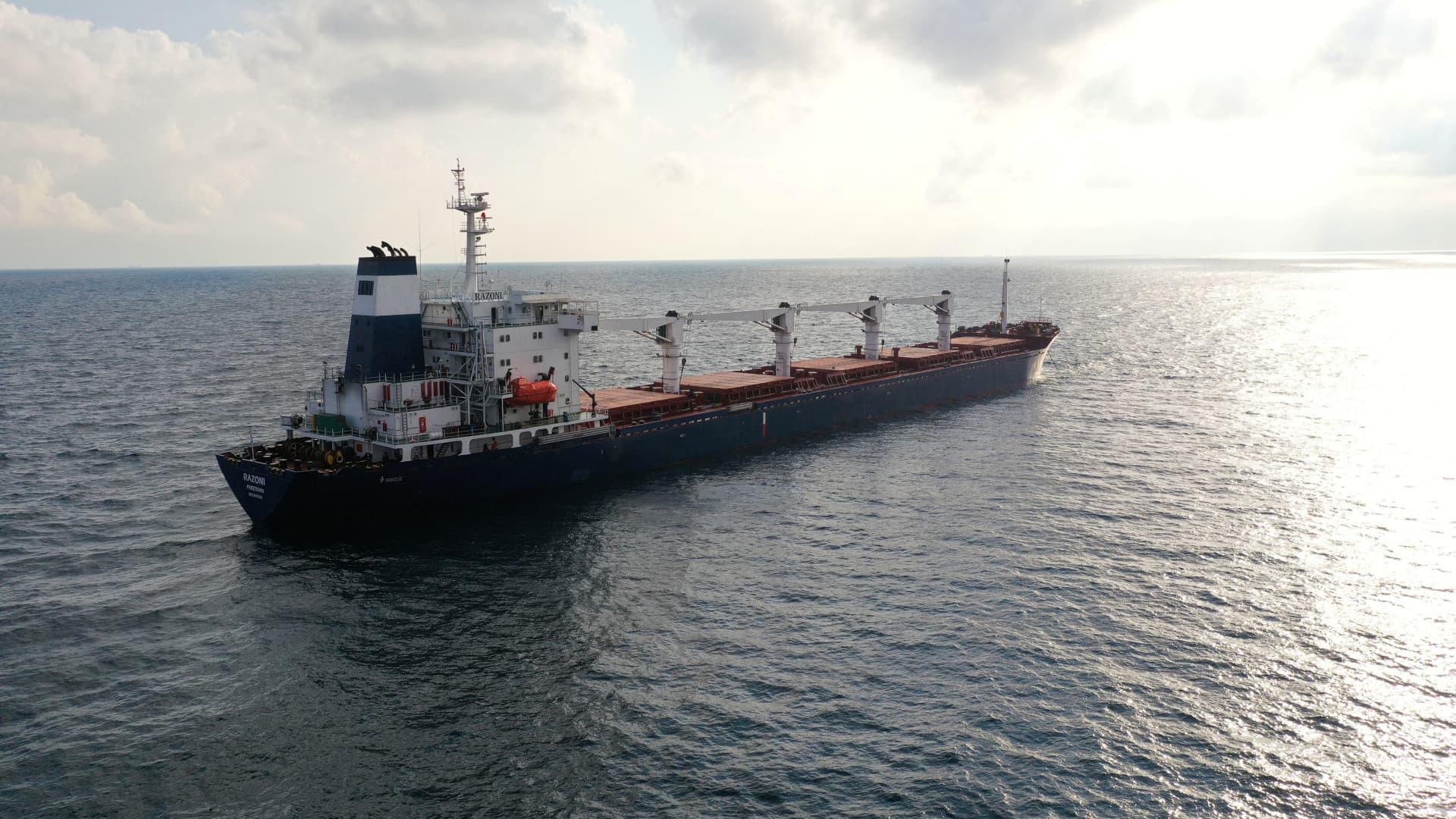Russia halts participation in the Black Sea Grain Initiative, the UN-backed deal that reopened Ukraine’s ports to feed countries around the world

The Sierra Leone-flagged cargo ship Razoni, carrying Ukrainian grain, is seen in the Black Sea off Kilyos, near Istanbul, Turkey August 3, 2022.
Mehmet Caliskan | Reuters
WASHINGTON – Moscow suspended its participation in the Black Sea Grain Initiative, an agreement brokered earlier this year that reopened Ukrainian ports for agricultural product export.
Russia’s Ministry of Defense said on Saturday that it would halt participation, citing retaliation for Kyiv’s “act of terrorism” against Russian warships. Russia’s Ministry of Foreign Affairs said that Ukrainian armed forces launched “massive air and sea strikes using unmanned aerial vehicles against ships and infrastructure of the Russian Black Sea Fleet at the naval base in Sevastopol.”
Russia also said British operators helped Ukraine’s military carry out the predawn attack, adding that at least 15 drones were involved.
Ukrainian Foreign Minister Dmytro Kuleba said Russia was using the attack as a “false pretext” for blocking the “grain corridor which ensures food security for millions of people.”
“We have warned of Russia’s plans to ruin the Black Sea Grain Initiative,” Kuleba wrote in a tweet. “I call on all states to demand Russia to stop its hunger games and recommit to its obligations.”
Before the war, Ukraine and Russia accounted for almost a quarter of global grain exports until those shipments came to a severe halt for nearly six months.
Ukraine is typically the world’s top producer and exporter of sunflower meal, oil and seed, according to the United States Department of Agriculture. Ukraine is also the world’s seventh-largest wheat producer.
The grain harvester collects wheat on the field near the village of Zgurivka in the Kyiv region, while Russia continues the war against Ukraine. August 9, 2022.
Maxym Marusenko | Nurphoto | Getty Images
The Black Sea Grain Initiative, a United Nations-backed deal brokered in July, eased Russia’s naval blockade and saw the reopening of three key Ukrainian ports. The first vessel left Ukraine’s port of Odesa on Aug. 1 carrying more than 26,000 metric tons of corn. Since then, nearly 400 ships carrying a total of 9 million metric tons have departed Ukraine’s ports.
Of the 40 countries receiving Ukrainian foodstuffs from the initiative, Spain has accepted the majority of agricultural products totaling 1.8 million metric tons.
Representatives from Ukraine, Russia, the U.N. and Turkey held negotiations to create the sea corridor in Istanbul earlier this year and signed the landmark deal in July. The agreement, which is set to expire next month, has helped address the mounting food crisis triggered, in part, by Russia’s war on its ex-Soviet neighbor.
The U.N. said in a statement that they are in touch with Russian authorities on the matter.
“It is vital that all parties refrain from any action that would imperil the Black Sea Grain Initiative which is a critical humanitarian effort that is clearly having a positive impact on access to food for millions of people around the world,” wrote Stephane Dujarric, spokesman for the U.N. Secretary-General, in a statement.
Russia’s foreign ministry said that it delivered relevant instructions to the Joint Coordination Center in Istanbul, which oversees the export of agricultural products from Ukraine.









